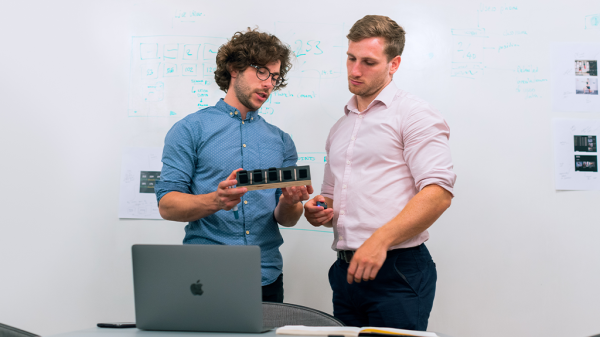Poker (robot) face
Know when to hold ‘em, know when to fold ‘em, know when to turn to artificial intelligence instead. This week concluded a 20-day long poker tournament that was actually an experiment testing out Carnegie Mellon’s AI bot, Libratus.
![]()
Libratus beat out four world class poker pros during a lengthy Heads-up No-Limit Texas Hold’em held in Pittsburgh at the Rivers Casino. On Monday, the last hand of the 120,000 hand game was played, with Libratus leading the pros by over $1.75 million in chips.
Soaking up information
The “Brains Vs. Artificial Intelligence” tournament marks a new milestone for artificial intelligence. Libratus was developed by Professor Tuomas Sandholm and Ph.D. student Noam Brown, both from the university’s computer science department. Sandholm said on CMU’s news site that “the best AI’s ability to do strategic reasoning with imperfect information has now surpassed that of the best humans.”
Four of the best Heads-up No-Limit Texas Hold’em players from around the world were gathered for the experiment.
Together, the humans strategized against the bot, but to no avail.
[clickToTweet tweet=”The bot learned from human players, algorithmically patching up holes in its own strategy at night.” quote=”The bot actually learned from the human players, algorithmically patching up any holes in its own strategy each night.”]
Why is Libratus special?
Sandholm notes this is different from previous algorithms since typically researchers develop programs to exploit opponent’s weaknesses. Libratus instead focused on fixing its own strategy, which was computed live for each hand.
This is remarkable because the bot was working with misleading and incomplete information.
The AI’s complex, real-time decisions were powered by Bridges, Pittsburgh Supercomputing Center’s computer. Bridges system surpasses a typical high-end laptop thousands of times in speed and memory.
Implications beyond gambling
Libratus’ victory in this imperfect information game has exciting implications beyond just dominating at poker. Nick Nystrom, PSC’s senior director, said “Bridges is powering new discoveries in the physical sciences, biology, social science, business and even the humanities.”
These discoveries could open up new realms for business negotiations, military strategy, cybersecurity, and medical treatment planning.
Implementing an automated decision-making AI system could potentially provide widespread benefits to public and private entities.
Going forward
Sandholm plans on continuing his research, applying imperfect-information games to real-world problems.
It is unclear whether or not Libratus had a pair of virtual sunglasses aiding its statistically significant defeat of the human pros.
Keep an eye out for Sandholm’s talk at the Association for the Advancement for Artificial Intelligence meeting this week where he’ll be sharing Libratus’ secrets.
And to all you virtual gamblers, don’t worry—the supercomputing powers needed to run Libratus means online poker rooms won’t be flodoed with robots any time soon.
#Libratus
Lindsay is an editor for The American Genius with a Communication Studies degree and English minor from Southwestern University. Lindsay is interested in social interactions across and through various media, particularly television, and will gladly hyper-analyze cartoons and comics with anyone, cats included.









































Pingback: This bipedal "nightmare-inducing" bot proves how creepy yet amazing robots are becoming - The American Genius
Pingback: Marble released its first food robot in San Francisco - The American Genius